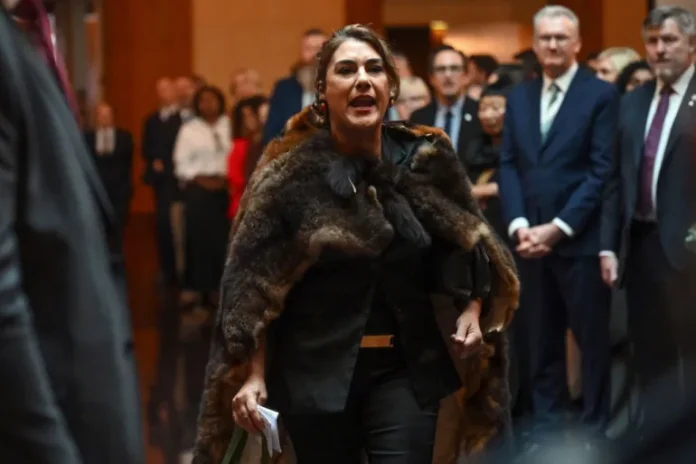The Australian Senate on Monday censured an Indigenous parliamentarian for her protest against King Charles during his visit to parliament last month when she accused the British monarch of genocide.
Lidia Thorpe shouted “You are not my king” and “This is not your land” shortly after the King spoke in the Great Hall of Parliament in an attempt to highlight the effects of British colonisation.
The Senate passed a vote of no confidence that passed 46-12, calling Thorpe’s actions “disrespectful and disruptive” and saying they should disqualify her from representing the chamber in any delegation.
Before the King’s speech, PM Anthony Albanese and Opposition Leader Peter Dutton welcomed Charles III and Camilla to Parliament House, thanking them for supporting Australians in both good and bad times. Albanese praised the King’s engagement on issues such as climate change and reconciliation.
Thorpe’s struggle
Thorpe had earlier released a statement arguing that Australia should become a republic and make a treaty with indigenous peoples as part of the process. She stated that “there remains unfinished business that we need to resolve before this country can become a republic.”
The censure motion is politically symbolic but has no constitutional or legal weight.
Shortly after Monday’s Senate vote, Thorpe told reporters she had been denied the right to speak on the floor because of flight delays. She said:
“The British crown has committed heinous crimes against the first peoples of this country …. I will not be silent.”
Thorpe is one of those in favour of a treaty between the Australian government and its first inhabitants.
Unlike New Zealand and other former British colonies, a treaty with Australia’s indigenous peoples has never been negotiated. Many Aboriginal and Torres Strait Islander people emphasise that they never ceded their sovereignty or land to the crown.
Despite the protests, the King was warmly welcomed by the Australian public during his five-day tour with Queen Camilla.
Last year, Australia strongly rejected a proposal to give Aboriginal and Torres Strait Islander people constitutional recognition and allow them to set up a body to advise parliament on issues affecting their communities.
The referendum, known as “The Vote,” became embroiled in a bitter campaign, with both sides of politics seeking a quick exit, leaving uncertainty over future policy.
While the evidence showed that the majority of Aboriginal and Torres Strait Islander people voted in favour, support was not unanimous. Thorpe herself was one of the leading supporters of the “no” vote, criticising the measure as symbolic.
